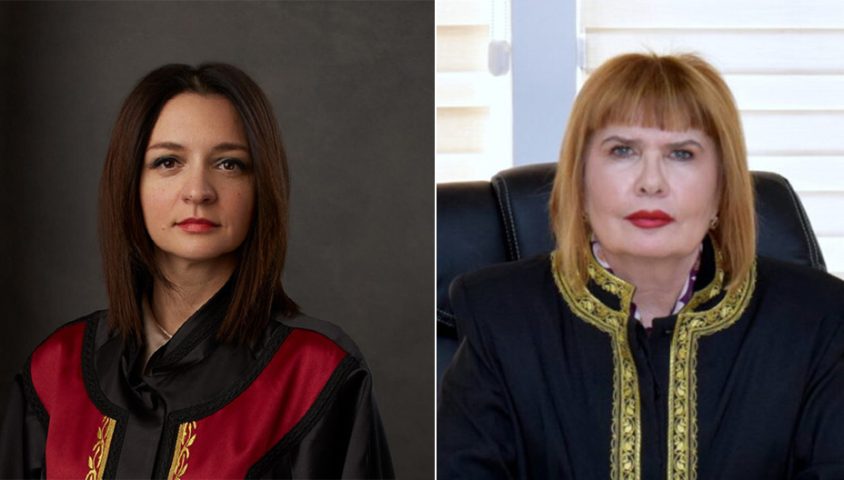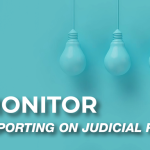
N7.T6 – The Judicial Council Did Not Allow Judges from the Special Department of the High Court in Podgorica to “Escape”
08/05/2025
N7.T8 – Human Rights Action Participates in Meeting with Venice Commission
08/05/2025N7.T7 – Tensions Between the Constitutional Court and the Supreme Court: A Joint Meeting as a Possible Solution

HRA NEWSLETTER 7 – TOPIC 7
The Constitutional Court of Montenegro has ruled, in cases where it accepted constitutional complaints, that the Supreme Court cannot dismiss lawsuits for fair trial claims due to abuse of rights, which effectively limits the rights of the complainants. This stance has prompted a response from the Supreme Court, emphasizing that while the relationship between the two courts “can be tense, it must, at its core, be collaborative, as the rule of law in Montenegro relies on their dialogue.”
The Constitutional Court initially asserted that it provided constitutional protection for the right to a trial within a reasonable time, particularly in instances where the Supreme Court dismissed lawsuits for fair satisfaction based on abuse of rights.
“By overturning the Supreme Court’s decisions and remanding them for reconsideration, the Constitutional Court conveyed its perspective that the Supreme Court had established new rules and methodologies for adjudicating claims for fair satisfaction, which were not defined by the Law on the Protection of the Right to a Trial Within a Reasonable Time or the Civil Procedure Code.”
The Constitutional Court also urged the Supreme Court to avoid making arbitrary conclusions in specific cases.
In response to the Constitutional Court’s statement, Valentina Pavličić, the head of Montenegro’s judiciary, highlighted the importance of maintaining judicial dialogue as a key strategic obligation on the path to European Union membership.
“It is therefore surprising that the Constitutional Court adopted this approach towards the Supreme Court. The publication of expert opinions from recent practice, coupled with one-sided statements urging the Supreme Court to ‘refrain from arbitrary conclusions in specific cases,’ deviates from the expected level of institutional restraint and legal grounding, giving the impression of sensationalism,” Pavličić stated.
The Supreme Court further emphasized that it will refrain from evaluating the Constitutional Court’s legal approach in these and other cases during Pavličić’s tenure.
Tea Gorjanc-Prelević, Executive Director of Human Rights Action, expressed her support for establishing a dialogue between the two courts in the interest of the public. “We believe it would be most effective and beneficial for the judges involved in these disputes to convene in a collegial professional meeting to address any uncertainties and prevent further unclear situations. This would ensure that the Constitutional Court does not continue to overturn the Supreme Court’s decisions, allowing the public to receive prompt justice from the Supreme Court,” Gorjanc-Prelević stated in an interview with Radio Montenegro.
HRA NEWSLETTER 7
- N7.T1 – Vesna Medenica Free to Travel Throughout Montenegro; Eight Judges Testify in Her Favor
- N7.T2 – Accountability of Judges and Prosecutors in Montenegro – A Rare Occurrence
- N7.T3 – Vetting in Moldova – Three Candidates Rejected in March
- N7.T4 – Closing Chapter 23: What Else Does Montenegro Need to Do in the Area of Judiciary?
- N7.T5 – Salary Increase for Judges and State Prosecutors
- N7.T6 – The Judicial Council Did Not Allow Judges from the Special Department of the High Court in Podgorica to “Escape”
- N7.T7 – Tensions Between the Constitutional Court and the Supreme Court: A Joint Meeting as a Possible Solution
- N7.T8 – Human Rights Action Participates in Meeting with Venice Commission
- N7.BN – BRIEF NEWS






 English
English